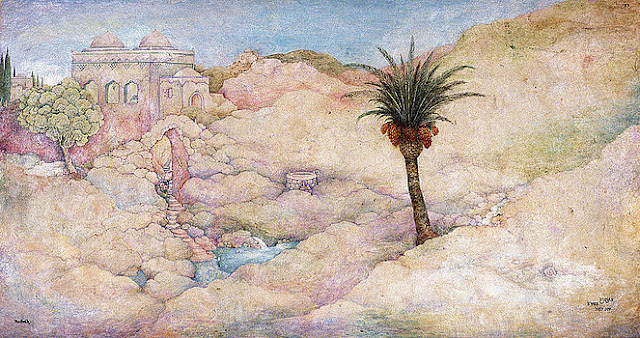by Rabbi David Hanania Pinto
"He encountered the place and spent the night there because the sun had sent" [Vayeitze 28:11]
The Midrash says that the words "because the sun had set", teach us that Hashem made the sun set before its time, so as to speak with Ya'akov privately.
The Midrash explains this using the mashal of the king's beloved friend who came to visit him on occasion. When he arrived, the king said, "Turn off the lights, extinguish the lamps, for I wish to speak with my beloved friend privately". So too, Hashem made the sun set before its time so as to speak to Ya'akov intimately.
Rabbi Shmuel Florentin of Salonica, in his sefer 'Minchat Shmuel', points out the following difficulty. On the verse, "And G-d came to Avimelech in a dream by night", the Midrash says that Hashem especially reveals Himself to the nations by night, as it says, "G-d came to Bilaam at night". We also find with Lavan that Hashem came to him in a dream at night, but Hashem reveals Himself to the Jewish prophets by day, as it says, "Hashem appeared to him in the plains of Mamre while he was sitting at the entrance of the tent in the heat of the day", as well as other examples. So why does the above Midrash say that Hashem made the sun set to speak to Ya'akov intimately, implying at night?
He answers according to the Moharash Yaffe, who says that prophecy by day comes only to a prophet who is accustomed to Hashem speaking to him, while to a prophet who is unaccustomed to prophecy, Hashem only reveals Himself at night. This explanation fits in with the precise wording of the Midrash, "it can be compared to the king's beloved friend who comes to visit him on occasion".













